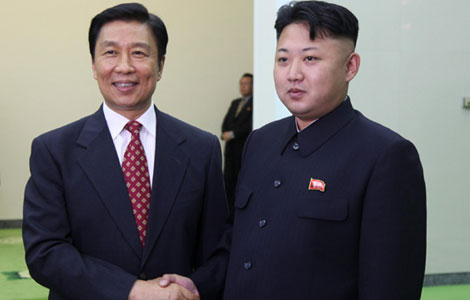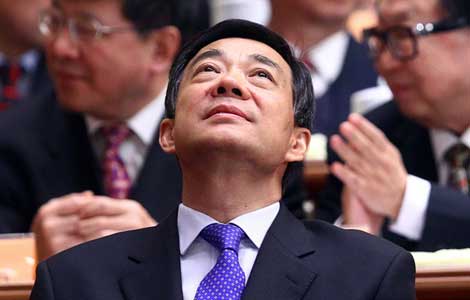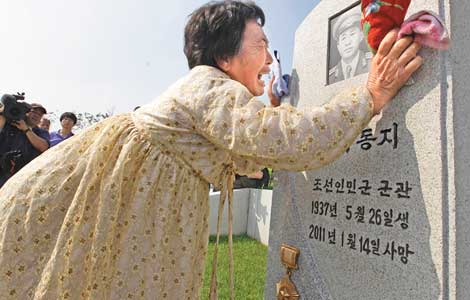From the Chinese press
Updated: 2013-07-26 08:35
(China Daily)
|
||||||||
'Master' artifice at work
Although the media have exposed the real activities of "Master" Wang Lin, he still exercises great influence on some celebrities and officials, which demands a serious thought, says an article in Southern Metropolis Daily. Excerpts:
Wang's celebrity followers are drawn to him because of his "mysterious" energy, but some corrupt and insecure government officials flock to him for "spiritual" comfort. The "Master" understands the psychology of such officials, who are always afraid of being exposed and arrested. Surprisingly these officials, instead of giving up their corrupt habits, believe that networking and luck will not only save them, but also make them successful.
The social network run by Wang is highly valued by some officials. For example, local officials in Wang's hometown of Pingxiang, Jiangxi province, "worshipped" him because he acted as a middleman to liaise with higher-level officials on their behalf. Wang's network flourished because some officials opted for a shortcut to promotion and success.
The current public discussion is centered on how Wang's network managed to attract officials. The public concern is justified but, apart from taking measures to stop officials from "worshipping" so-called Masters, the authorities should also make efforts to instill the value of honesty and hard work in officials and warn them of the power of law enforcement agencies and the judiciary.
Education is all about quality
Peking University recently rejected the demand of some students, who had performed excellently in the national college entrance exam, for scholarships as bonus for getting admitted to the university to raise its profile. By using their high scores as a bargaining chip for getting scholarship, these students have become victims of their own doing, says an article on gmw.cn. Excerpts:
Peking University was justified in rejecting the demand of the top students. After all, they have excelled in only one of the many important exams in their life and do not need to be rewarded before proving themselves capable in the others.
But these toppers alone are not to blame for the prevailing state of affairs in the echelons of higher education. To a certain degree, prestigious universities that compete with each other to attract students who have scored high marks in the national college entrance exam are also to blame for the situation. Apart from being offered alluring bonuses by such universities eager to enhance their reputation, high-quality students are also given huge cash awards by local governments to add to their political achievements.
There is nothing wrong in universities offering incentives to attract top students, but the incentives should be highly qualified teachers and best quality education. There is also nothing wrong in society lauding the achievements of top students, but people should be able to differentiate between right and wrong and not give undue importance to their scores in the national college entrance exam.
The fact that Peking University rejected the money-oriented demand of the top students, however, shows that some universities have realized what education should be all about. Their realization also tells us that it is high time universities focused on offering high-quality and practical education.
But it remains to be seen whether Peking University's action will serve as a wake-up call for other universities and society as a whole.
(China Daily USA 07/26/2013 page16)

 Top DPRK leader meets Chinese vice-president
Top DPRK leader meets Chinese vice-president
 US does not plan decision on Egypt coup
US does not plan decision on Egypt coup
 Bo Xilai indicted for corruption
Bo Xilai indicted for corruption
 Korean War veterans return to peninsula
Korean War veterans return to peninsula
 Tourist safety a priority in S China Sea
Tourist safety a priority in S China Sea
 Death toll in Spain train crash rises to 77
Death toll in Spain train crash rises to 77
 Royal baby named George Alexander Louis
Royal baby named George Alexander Louis
 'The Grandmaster' takes center stage
'The Grandmaster' takes center stage
Most Viewed
Editor's Picks

|

|

|

|

|

|
Today's Top News
Scholars provide a tour 'around the world'
GM says weakness in Asia leads to profit drop
Syrian rebels ask Kerry to send US arms quickly
Flights over sea 'routine training'
US does not plan decision on Egypt coup
Congress approves NSA spying program
Japanese PM unlikely to visit Yasukuni Shrine
Girl, 2, thrown to ground; suspect detained
US Weekly

|

|







